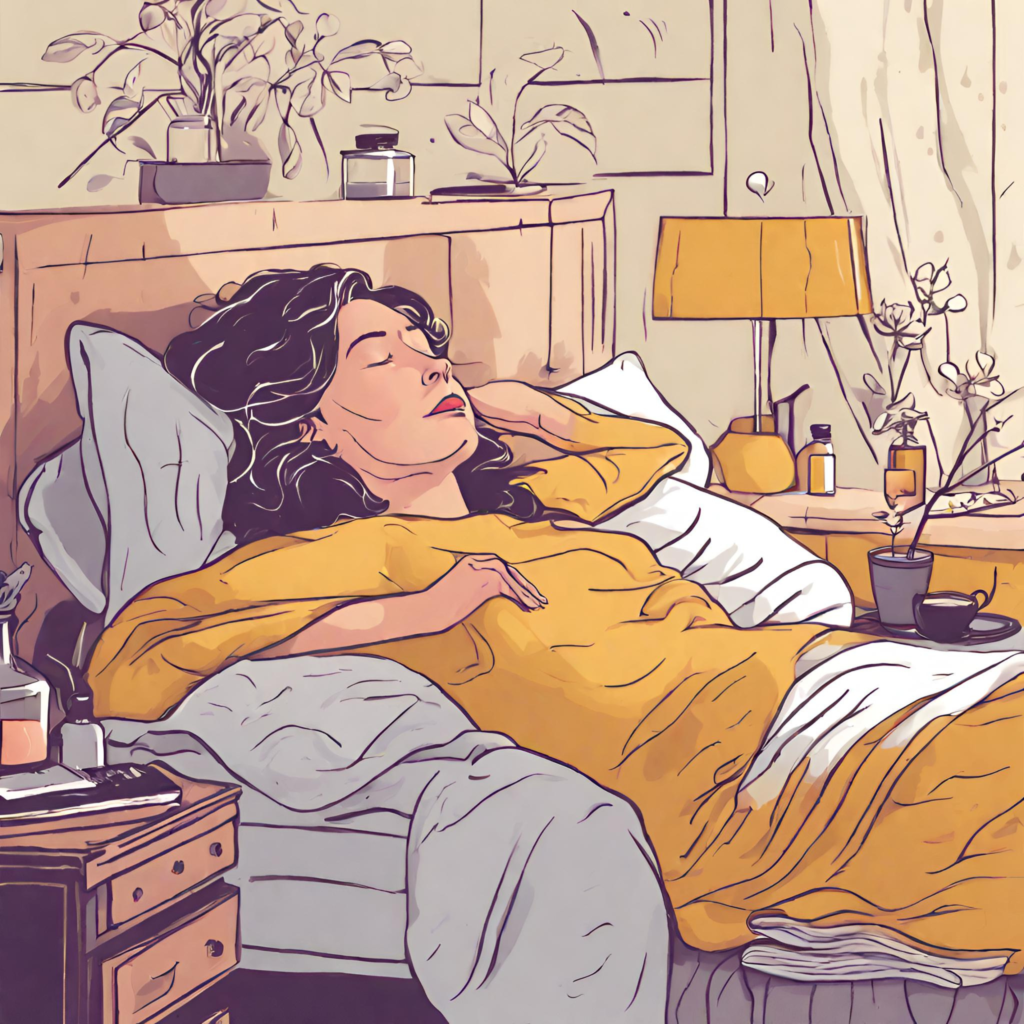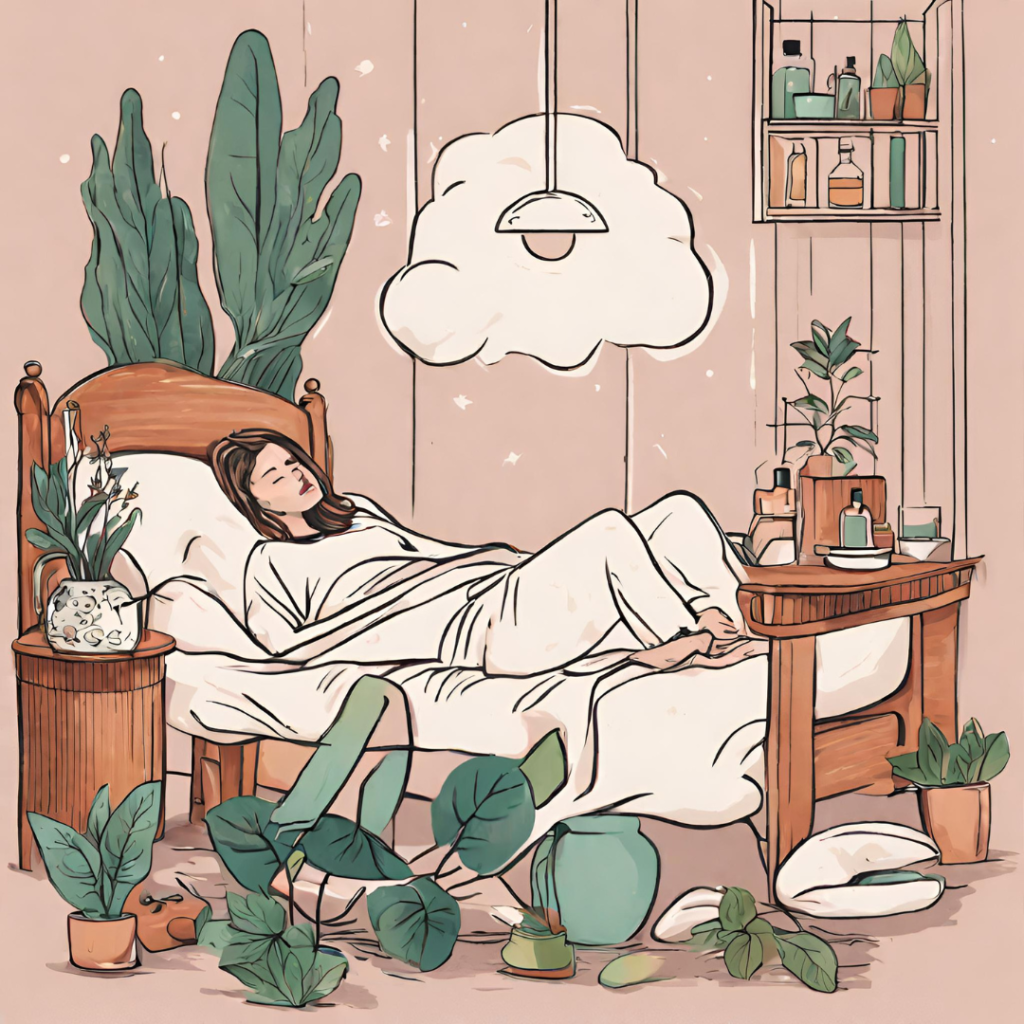In the pursuit of wellness, aromatherapy for enhanced sleep quality has gained popularity as a natural and effective method. This ancient practice, which harnesses the power of aromatic essential oils, offers a serene escape into tranquility, especially beneficial when paired with napping. The integration of aromatherapy with napping has emerged as a holistic approach to improving relaxation and sleep.
Unlocking the Science Behind Aromatherapy and Improved Sleep
Aromatherapy transcends the realm of pleasant scents, standing out as a holistic healing treatment that employs natural plant extracts to bolster health and well-being. Essential oils for improved napping operate on the principle that specific aromas can stimulate the limbic system in the brain, which governs emotions, memories, and arousal. This fascinating connection positions aromatherapy as a powerful tool for inducing relaxation and enhancing sleep quality. Various studies have illuminated how certain fragrances can influence our nervous system, altering mood, easing tension, and promoting better sleep.
Essential Oils: Nature’s Allies in Achieving Restorative Sleep
At the heart of aromatherapy are essential oils, nature’s answer to restlessness and sleep disturbances. Extracted from flowers, herbs, and botanicals, these oils serve as natural sleep aids with essential oils, offering a remedy to common sleep issues. Some of the most effective essential oils for sleep include:
- Lavender: Known for its calming properties, lavender oil is widely used for stress relief and relaxation, making it a staple in boosting nap quality with aromatherapy.
- Chamomile: Beyond its popular use in tea, chamomile oil is revered for its ability to calm nerves and encourage sleep.
- Bergamot: With its unique citrusy yet soothing aroma, bergamot oil assists in reducing anxiety and improving overall sleep quality.
Each of these oils brings unique benefits and can be employed individually or combined to create tailored sleep-enhancing blends.
Enhancing the Napping Experience with Aromatherapy
The synergy between napping and aromatherapy creates an optimal environment for restorative sleep. Aromatherapy enriches the napping process by facilitating a quicker transition into a relaxed state, making even brief naps profoundly rejuvenating. The key to success lies in creating a napping environment that signals relaxation to both mind and body. This can be achieved by diffusing calming scents in the napping area or applying diluted essential oils to pulse points before resting.

Effective Use of Essential Oils for Napping
To fully harness the potential of restorative sleep through aromatherapy, it’s crucial to use essential oils correctly. Here are some effective methods:
- Diffusing: Employing an essential oil diffuser is a popular way to spread the fragrance in your napping space. Adding a few drops of your chosen oil to the diffuser about 15 minutes before your nap can set the stage for improved sleep.
- Topical Application: For a more direct approach, apply essential oils to the skin, particularly at pulse points like wrists or temples. It’s important to dilute the essential oil with a carrier oil to prevent skin irritation.
- Inhalation: For immediate relaxation, inhale the oil directly from the bottle, or rub a drop between your palms and breathe deeply.
Best Essential Oils for Sleep-Inducing Naps
Selecting the right essential oil is crucial for enhancing the quality of your nap. In the realm of boosting nap quality with aromatherapy, certain oils stand out:
- Ylang Ylang: Renowned for its soothing properties, Ylang Ylang is ideal for reducing stress and encouraging relaxation.
- Sandalwood: Known for its rich, woodsy scent, Sandalwood is excellent for grounding and deep relaxation, essential components of restorative sleep through aromatherapy.
- Jasmine: Celebrated for its ability to alleviate anxiety, Jasmine’s sweet floral aroma is effective in improving sleep quality.
Experimenting with these oils, either individually or in combination, can help in tailoring the perfect aromatherapy experience for your napping routine.
Creating Your Aromatherapy Nap Routine for Enhanced Sleep
Establishing a consistent aromatherapy routine is key to reaping the maximum benefits of this practice. Integrating aromatherapy with napping involves setting a regular time for your nap and preparing your space with your chosen scent. Maintaining a dimly lit room and comfortable temperature can also signal your body that it’s time to wind down, enhancing the overall effectiveness of essential oils for improved napping.
The Impact of Aromatherapy on Sleep Quality
Research has consistently shown that aromatherapy can significantly enhance sleep quality. For example, studies reveal that lavender oil not only aids in falling asleep faster but also contributes to a deeper, more restorative sleep. This evidence underscores the effectiveness of natural sleep aids with essential oils in enhancing overall sleep experiences.

Overcoming Common Sleep Challenges with Aromatherapy
For those struggling with sleep issues like insomnia, aromatherapy offers a natural solution. Blending lavender and chamomile can be particularly effective for insomnia, while peppermint might be beneficial for sleep disturbances caused by digestive problems. Customizing your aromatherapy approach to address specific sleep challenges can lead to more effective outcomes.
Personalizing Aromatherapy for Your Napping Needs
As individual responses to scents vary, personalizing your aromatherapy routine is essential. Pay attention to how different essential oils affect your mood and sleep quality. Some oils might be more suitable for daytime naps, while others work better in the evening. Trusting your instincts and personal preferences is key in creating a customized aromatherapy blend that meets your specific napping needs.
Conclusion: The Synergy of Napping and Aromatherapy for Optimal Well-being
Incorporating aromatherapy into your napping routine can significantly transform your rest experience. With a wide range of essential oils available, you have the freedom to explore and discover what works best for you. Whether it’s the calming effect of lavender, the uplifting aroma of citrus, or the grounding nature of sandalwood, the right scent can turn your nap into a rejuvenating, sleep-enhancing experience.
FAQs: Enhancing Your Napping Experience with Aromatherapy
To further guide you, here are some answers to frequently asked questions about integrating aromatherapy with napping:
A nap of 20-30 minutes is usually sufficient for rejuvenation. For deeper rest, consider a nap of up to 90 minutes.
Absolutely! Aromatherapy works well with other natural sleep aids like maintaining a dark, quiet environment, and using comfortable bedding.
While essential oils are generally safe, some individuals may experience skin sensitivity or allergic reactions. It’s important to conduct a patch test and use oils as directed.
Aromatherapy can be a daily part of your napping routine. It’s a natural, non-invasive way to enhance your overall sleep quality.


